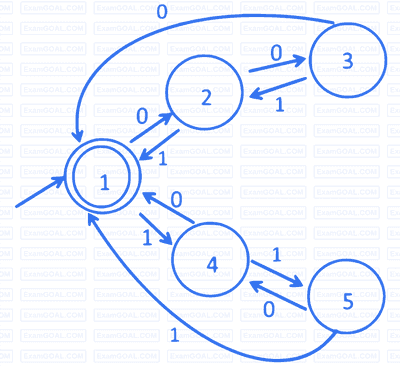Let $L_1, L_2$ be two regular languages and $L_3$ a language which is not regular. Which of the following statements is/are always TRUE?
Consider the 5-state DFA $M$ accepting the language $L(M) \subseteq (0+1)^*$ shown below. For any string $w \in (0+1)^*$ let $n_0(w)$ be the number of 0's in $w$ and $n_1(w)$ be the number of 1's in $w$.

Which of the following statements is/are FALSE?
Let G = (V, Σ, S, P) be a context-free grammar in Chomsky Normal Form with Σ = { a, b, c } and V containing 10 variable symbols including the start symbol S. The string w = a30b30c30 is derivable from S. The number of steps (application of rules) in the derivation S ⟹ w is _______
Consider the following two regular expressions over the alphabet {0,1} :
$$r = 0^* + 1^*$$
$$s = 01^* + 10^*$$
The total number of strings of length less than or equal to 5, which are neither in r nor in s, is ________